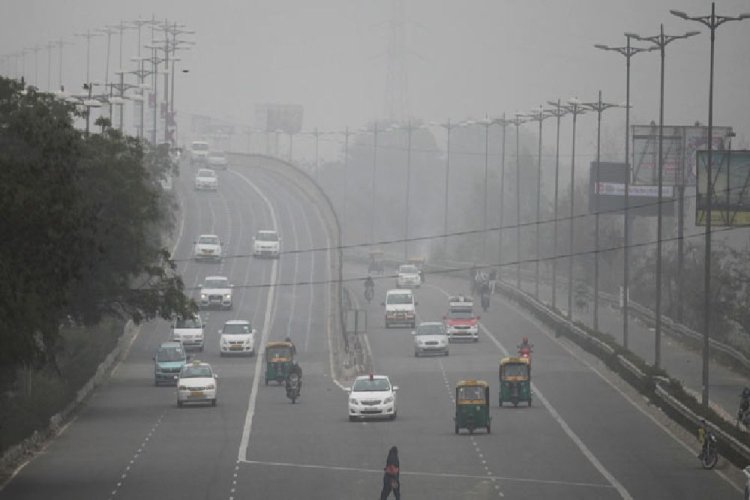Delhi's air quality poor for 2nd day on trot

New Delhi: Delhi's air quality remained "poor" for the second consecutive day on Monday and no improvement is likely in the next six days, forecasting agencies said here.
Delhi's 24-hour average air quality index (AQI) stood at 237 at 4 pm, worsening from 232 at 4 pm on Sunday. It was 247 in Ghaziabad, 286 in Faridabad, 254 in Greater Noida, 232 in Gurugram and 254 in Noida.
An AQI between zero and 50 is considered 'good', 51 and 100 'satisfactory', 101 and 200 'moderate', 201 and 300 'poor', 301 and 400 'very poor', and 401 and 500 'severe'.
According to the Decision Support System of the Indian Institute of Tropical Meteorology (IITM), the transport sector accounted for 19 per cent of PM2.5 pollution in Delhi on Monday.
The Early Warning System of the IITM said the air quality was likely to "remain largely in the poor category" over the next six days.
The System of Air Quality and Weather Forecasting and Research (SAFAR) predicted a peak wind speed of 12 km per hour over the next three days which will lead to only moderate dispersion of pollutants.
Data from the Indian Agricultural Research Institute showed a spike in the incidents of stubble burning in Punjab.
The agrarian state reported 169 farm fires on Saturday, 206 on Sunday and 403 on Monday.
According to experts, the delay in paddy harvesting due to two prolonged spells of rains -- in late September and October -- could lead to a spike in stubble burning incidents as farmers would be in a race against time to prepare their fields for the next crop.
Along with unfavourable meteorological conditions, paddy straw burning in Punjab and Haryana is a major reason behind the alarming spike in air pollution levels in the national capital in October and November. Farmers set their fields on fire to quickly clear off the crop residue before cultivating wheat and potato.
On Sunday, the Commission for Air Quality Management (CAQM) asked agencies to strictly implement measures under Stage I of the Graded Response Action Plan (GRAP) as the air quality in Delhi and neighbouring areas slipped to the poor level.
GRAP is a set of anti-air pollution measures followed in the capital and its vicinity according to the severity of the situation.
Under Stage 1 (poor air quality), the CAQM recommends stopping construction and demolition activities at sites having plot size equal to or more than 500 square metres that are not registered on the "web portal" of the respective states for remote monitoring of air pollution levels.
Project proponents are required to ensure proper implementation of guidelines for dust mitigation, management of construction and demolition waste and use of anti-smog guns at construction sites.
Agencies concerned are required to ensure periodic mechanized sweeping of roads and water sprinkling, and impose heavy fines for violation of the curbs on open burning of biomass and municipal solid waste.
The authorities are required to strictly enforce PUC (pollution under check) norms for vehicles and maintain a strict vigil to ensure that there are no burning incidents at landfills and dumpsites.
They also need to ensure that thermal power plants comply with emission norms and only approved fuel is used by industries, and stringent action is taken against violators.















































